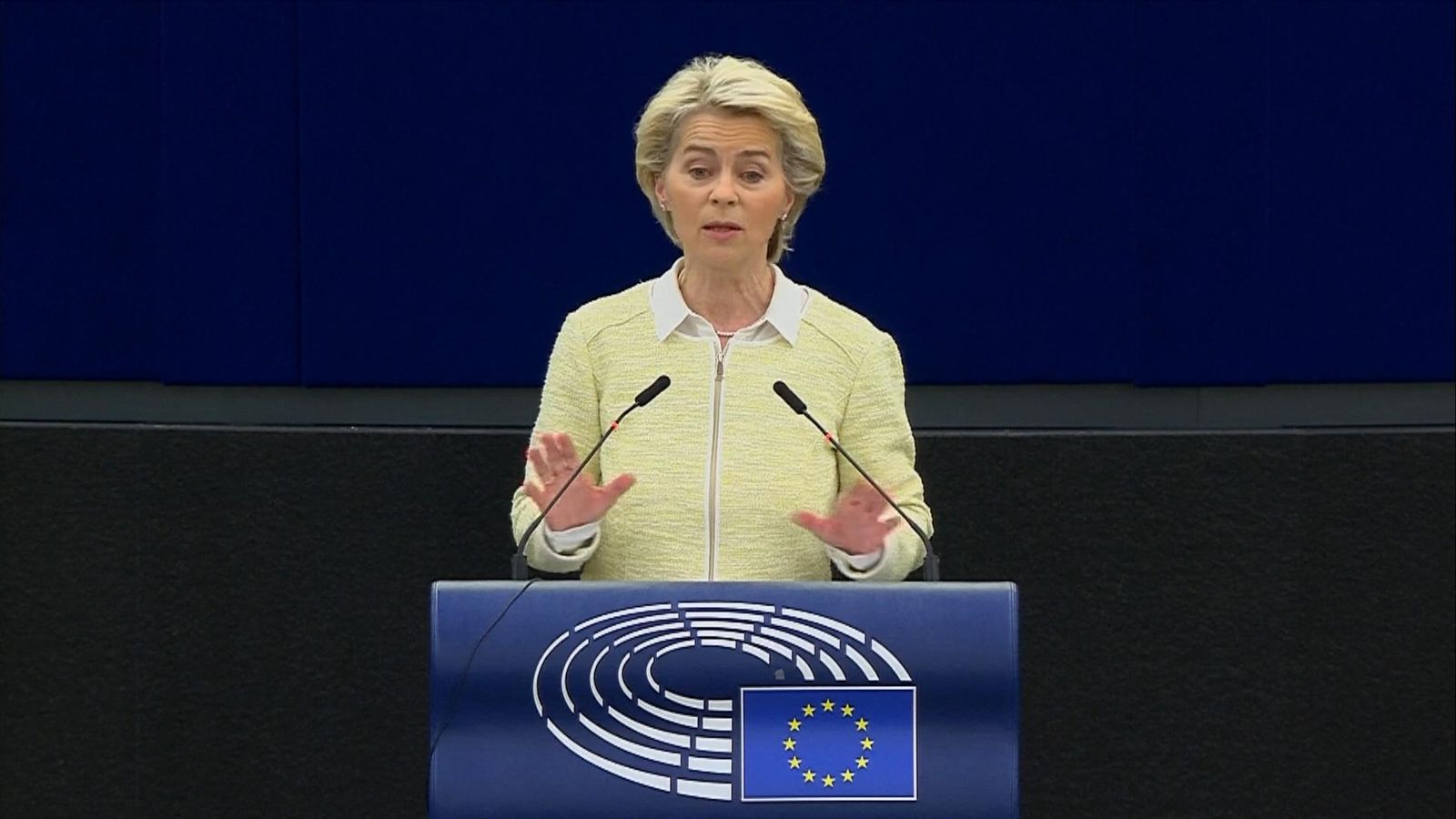Ukraine war: EU plans Russian oil ban by the end of the year in new package of sanctions
The European Union has announced plans to ban Russian oil by the end of the year as part of a sixth package of sanctions in response to the war in Ukraine.
European Commission President Ursula von der Leyen told the bloc's parliament in Strasbourg that member states should cease to buy oil supplies within six months and associated products from Russia by the end of 2022.
The sanctions are yet to be formally approved by member states and will likely be voted down by those who are reliant on supplies from Russia, such as Hungary and Slovakia, without exemptions being agreed.
Ms von der Leyen proposed: "This will be a complete import ban on all Russian oil, seaborne and pipeline, crude and refined.
"It will not be easy. Some member states are strongly dependent on Russian oil. But we simply have to work on it."
"(Vladimir) Putin must pay a price, a high price, for his brutal aggression," she said to applause across the parliament's chamber.
The move follows a similar measure announced by Britain in early March but the country secures far less oil and oil products from Russia than many EU member states.
Hungary and Slovakia had already threatened to veto any outright ban before the announcement.
While the EU relies on Russia for around 26% of its supplies, Slovakia secures over 90% of its oil from Russia.
A majority of Hungary's oil is also sourced from Russia.
Germany, which had been initially reluctant to support such measures, has managed to bring its share of Russian oil imports down to 25% and signalled it could now cope with an embargo.
The EU's announcement was credited with sending Brent crude prices higher on Wednesday morning - up more than 3% at just below $109 a barrel.
There was no announcement from the Commission on any measures targeting gas imports.
But Ms von der Leyen said there would be new sanctions to outlaw three Russian broadcasters and target banks, including Sberbank.
She said Russia's largest lender and two others would be added to the list of those excluded from the SWIFT messaging system.
More high-ranking Russian military officials were to face asset freezes and travel bans, she said, without divulging the names.
The speculation around the oil embargo is that Hungary and Slovakia would be given more time to source oil from elsewhere - possibly until the end of 2023.
Simone Tagliapietra of the Brussels-based Bruegel think-tank said the strategy was risky in that it risked adding to Europe's inflation problem.
"In the short term it might leave Russian revenues high while implying negative consequences for the EU and the global economy in terms of higher prices - not to mention retaliation risks (by Russia) on natural gas supplies," he said.
European Commission President Ursula von der Leyen told MEPs 'we must work' to secure an oil embargo





Post a Comment